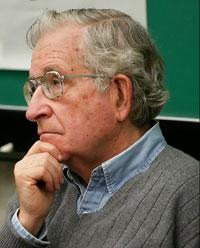Source: Olivia Solon, Wired Epicenter

The global financial crisis of 2007-2009 heralded the start of a sixth major wave of innovation — that of resource efficiency, according to Dr James Bradfield Moody, author of The Sixth Wave, speaking at the Creative Sydney conference.
The Russian economist Nikolai Kondratievfirst postulated the major cycles of innovation in 1925. The five initial major economic cycles have been defined as the industrial revolution; the age of steam and railways; the age of steel and electricity; the age of oil, cars and mass production, and the age of information and communication. Each range from 40 to 60 years and consist of alternating periods between high sector growth and periods of slow growth.
Moody predicts that the sixth cycle will be defined by resource efficiency. The new wave is heralded by massive changes in the market, societal institutions and technology that all reinforce each other. These include rising scarcity of ore grades, increase in water demand, and an increasing recognition of the economic value of the environment over and above its potential as a resource and a rise in cleantech. Moody said: “What is the value of a tree? Is it what you get when you sell the wood or the land? Or is it the value of the water it generates of the Co2 it converts into oxygen? We are starting to attach an economic value to all of these things.”
He describes this process as decoupling economic growth from resource consumption. “We are moving from an old mode of operation when we were harvesting resources that were plentiful and cheap to a time when we are managing resources that are scarce and valuable.”
Moody flagged up four rules of thumb for succeeding in this new economy:
Waste is an opportunity
“If you want to succeed you need to find waste and do something with it.” He described a Canadian brewery called Storm Brewing that found that it could use its drain waste to grow shitake mushrooms. The shitake mushrooms then change the drain waste to ensure that it can be fed to animals. As a result they are now a beer, shitake mushrooms and animal feed company. Likewise business models such as Streetcar and GoGet ensure than cars as capital assets are being used more efficiently. GoGet sees 10 families on average using a single car.
Sell the service, not the product
In the case of Streetcar or GoGet, people aren’t buying the car but they are buying mobility. In a product-driven world, consumers want their washing machines to last forever and manufacturers want it to last until the warranty is expired so they can sell you another one. If you rented the machine or paid per wash, both vendor and customer share the same desire for the product to last as long as possible. This sort of alignment can be achieved with business model innovation.
Bits are global, atoms are local
You need to work out what you need locally and what you don’t mind being global or virtually accessed. You need local production when you are consuming something — it costs so much to move things around so local production then becomes important. The likes of 3D printing can enable low cost, local production. Services, however, can be delivered globally.
If in doubt, look to nature
Nature as a designer has been doing a lot of the things you need to do in world of limited resources: it always has two-way chemical reactions, uses energy from the sun, consumes as locally as possible and reuses waste products. Thus the Center for Marine Biofueling and Bioinnovation at the University of New South Wales has created a boat surface that mimics shark skin and prevents the adhesion of barnacles and algae. Moody explains: “When you design with as little resource as possible it always ends up looking like insects or bones.”















![Reblog this post [with Zemanta]](https://i0.wp.com/img.zemanta.com/reblog_e.png)



 Reading the first sentence of Terry Eagleton’s
Reading the first sentence of Terry Eagleton’s